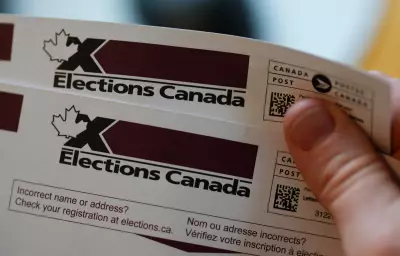
In what should have been a routine municipal election, a quiet Ontario town found itself at the center of a digital age political scandal that has residents questioning the very nature of modern campaigning. The peaceful race for town council was abruptly upended when private, embarrassing photographs of multiple candidates began circulating among voters.
The Digital Ambush That Rocked Local Politics
According to investigative reports, the compromising images weren't leaked by political opponents in the traditional sense. Instead, they were allegedly distributed by a shadowy third party with no direct stake in the election outcome. This mysterious figure obtained the photos through what appears to be sophisticated social media digging and digital reconnaissance.
The photos in question depicted candidates in various compromising situations—some showing minor youthful indiscretions, others capturing moments that could be interpreted as unprofessional or embarrassing. While none of the images were illegal, their strategic release created exactly the kind of controversy the unknown distributor intended.
A New Era of Political Warfare
This incident highlights a growing trend in political campaigns at all levels: the weaponization of digital footprints. Local candidates, often inexperienced with the harsh realities of modern political warfare, are particularly vulnerable to these types of attacks.
What makes this case particularly concerning for election officials is the involvement of an external actor. Unlike traditional opposition research conducted by competing campaigns, this appears to be interference by someone with no formal connection to any candidate—raising questions about motives and potential violations of election laws.
The Fallout and Broader Implications
The scandal has triggered multiple investigations, including probes by municipal election officials and potentially local law enforcement. The affected candidates have been forced to address their pasts publicly, with some considering withdrawing from the race entirely.
This situation serves as a stark warning for anyone considering public office in the digital age. Your past, captured in pixels and posts, can resurface at the most inconvenient times. For small communities where politics has traditionally been more personal and less confrontational, this represents a troubling new normal.
As one political analyst noted, "When external actors can influence local elections with nothing more than a smartphone and some digging, we've entered dangerous territory for democratic processes."





